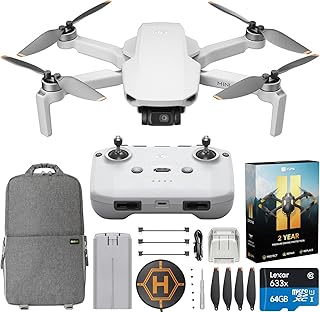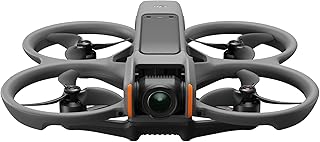DJI Drone: The Future of Drone Technology
DJI, a Chinese technology company, has become synonymous with drone technology. Their innovative products have democratized aerial photography and videography, pushing the boundaries of what drones can do. But is DJI simply leading the current trend, or are they shaping the future of drone technology?
Here's why DJI is considered a leader:
* Innovation: DJI constantly introduces new features and technologies. They were pioneers in areas like obstacle avoidance, active tracking, and 360�� panoramic photography. Their latest offerings like the Mavic 3 and the Mini 3 Pro push the limits of camera quality and flight performance.
* Accessibility: DJI makes drones accessible to a wide range of users. Their products are designed to be user-friendly, with intuitive interfaces and powerful apps. This has made drones accessible to hobbyists, professionals, and even everyday consumers.
* Ecosystem: DJI offers a vast ecosystem of accessories, software, and services, from remote controllers and batteries to flight planning apps and drone insurance. This comprehensive ecosystem enhances user experience and fosters a thriving drone community.
* Market Dominance: DJI holds a commanding share of the commercial drone market, contributing to significant advancements in various industries like agriculture, inspection, mapping, and filmmaking.
But what does the future hold for DJI and drone technology?
* Artificial Intelligence: DJI is already incorporating AI into its drones, enabling features like autonomous flight and object recognition. This trend is likely to accelerate, leading to smarter, more capable drones with even greater automation.
* Integration with 5G: The rollout of 5G networks will enable faster data transmission and better connectivity for drones. This could unlock new possibilities for real-time data analysis, remote control, and even drone swarms.
* Regulation and Safety: The growing popularity of drones has raised concerns about safety and privacy. DJI is actively working with regulators to ensure safe and responsible operation, developing technologies like geofencing and airspace awareness.
* New Applications: Drones are already being used in innovative ways, from delivering packages and inspecting infrastructure to mapping forests and monitoring wildlife. The future will see drones deployed in even more industries, tackling challenges and improving our lives in unexpected ways.
Challenges for DJI:
* Competition: Emerging drone companies like Autel, Parrot, and Skydio are increasingly challenging DJI's market share.
* Geopolitical Concerns: US-China tensions could impact DJI's operations and sales, particularly in the US market.
* Sustainability: The environmental impact of drone production and battery disposal is a growing concern that DJI and other companies need to address.
In conclusion:
DJI is undeniably a leading force in drone technology. Their commitment to innovation, accessibility, and market dominance continues to shape the future of this rapidly growing field. However, the future is not without challenges. How DJI navigates these challenges and embraces new technologies like AI and 5G will determine their long-term success and the future of drone technology itself.


